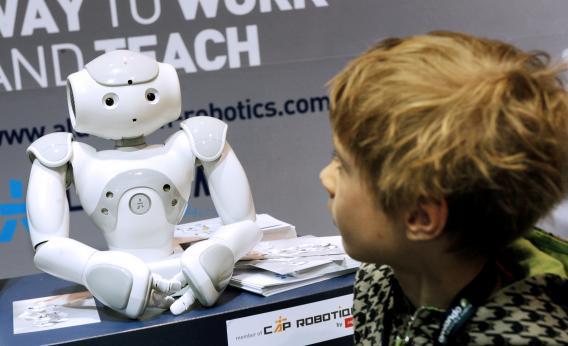Latitude Research, joined by the Lego Learning Institute and Project Synthesis, interviewed 348 children in Australia, France, Germany, South Africa, the United Kingdom, and the United States about robots—in particular, how kids would see robots in the classroom and at home. The children imagined what it would be like to have a robot in their lives and drew pictures of their made-up automatons. The results of “Study: Robots Inspire New Learning & Creative Possibilities for Kids” are fascinating as well as hilarious.
According to Latitude’s analysis, “Nearly 2/3 of kids took for granted that robots could make excellent human friends in spite of their machine intelligence—blurring the line between technology and humanness.” The report also found that children see robots as “better versions of our teachers and parents, offering limitless time and patience, encouraging confidence and self-direction, and allowing us to make mistakes sans self-consciousness.”
And like humans who long for a laundry robot, some children—about 25 percent of those surveyed—hoped that robots could take on chores to give them more time for learning or for play. A 9-year-old German boy’s description of his robot is rather poignant: “Since my parents really are always at work a lot, they can’t always help me or play with me or cook something. Now the robot helps them with that.”
It’s touching to see how children imbued their imagined robots with human characteristics, emotions, and even hobbies. (Kids really like the idea of dancing robots.) One 8-year-old girl from the United States wrote of her automaton: ““No one would ever know that she is a robot except that she is made of metal and does not have skin. She is really smart and everyone likes to talk to her. She has a funny voice, but we do not tease her.”
Read more on Latitude; via IEEE Spectrum.
